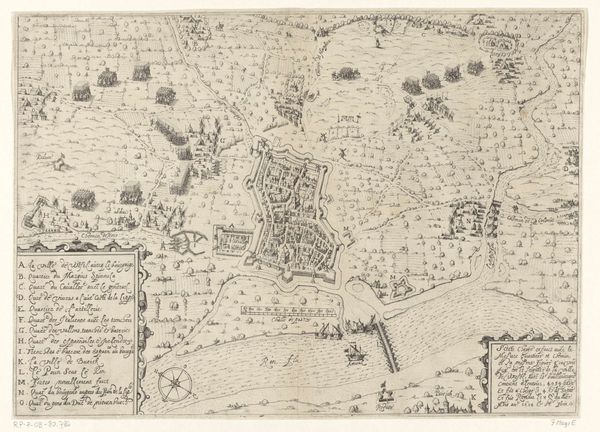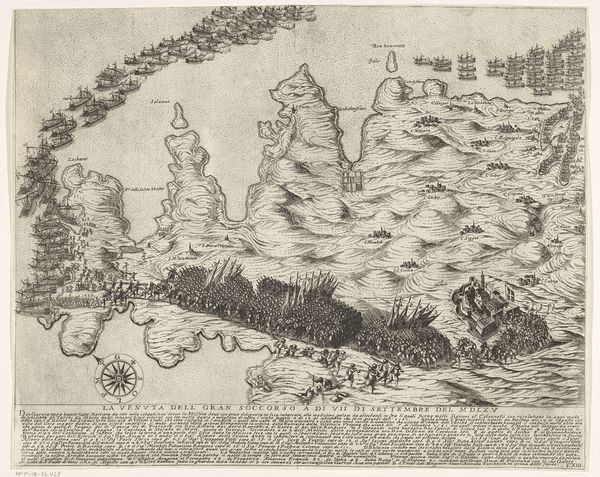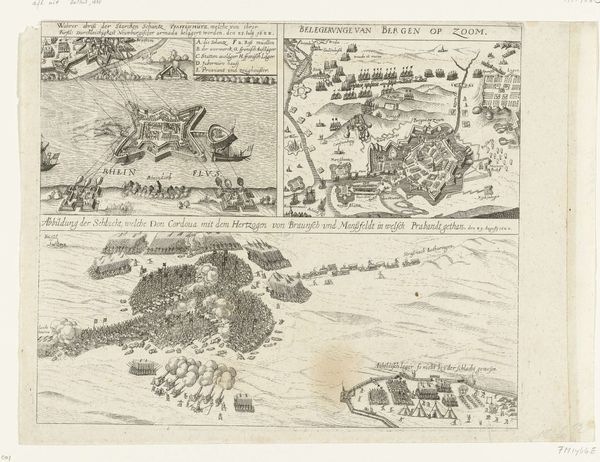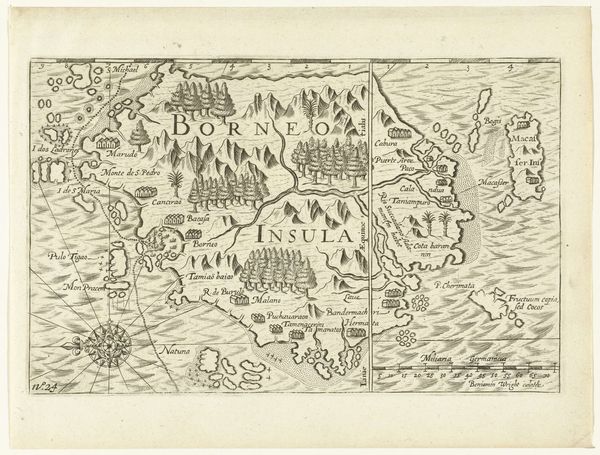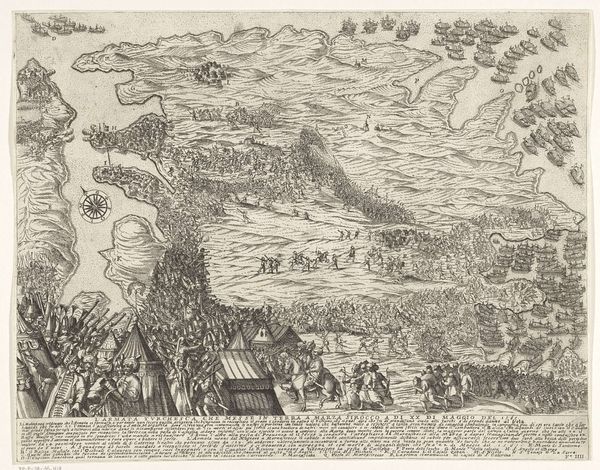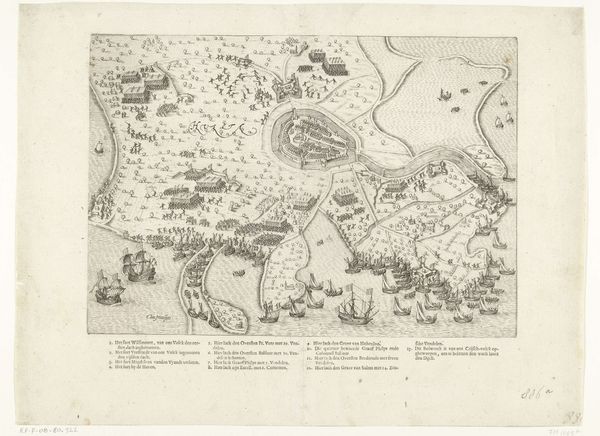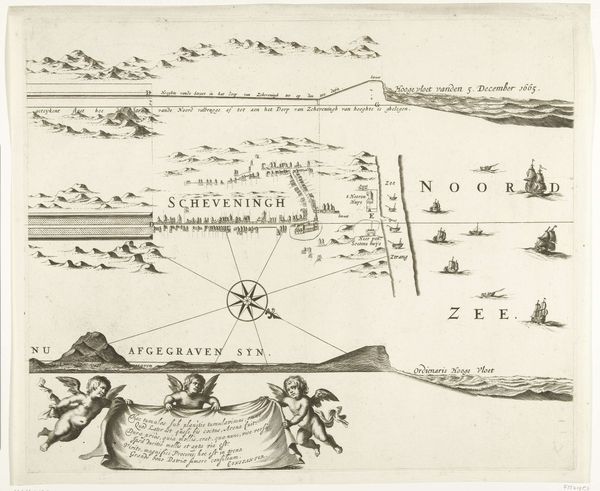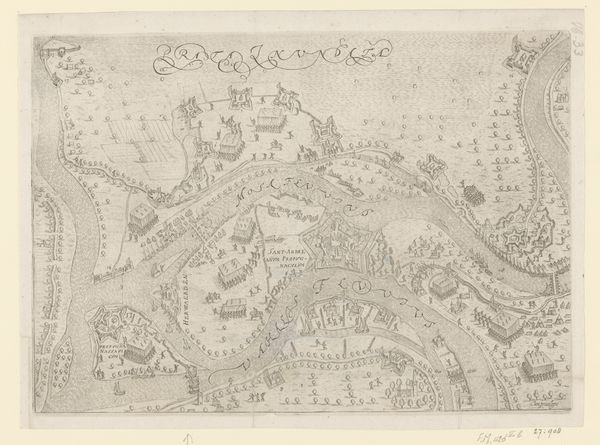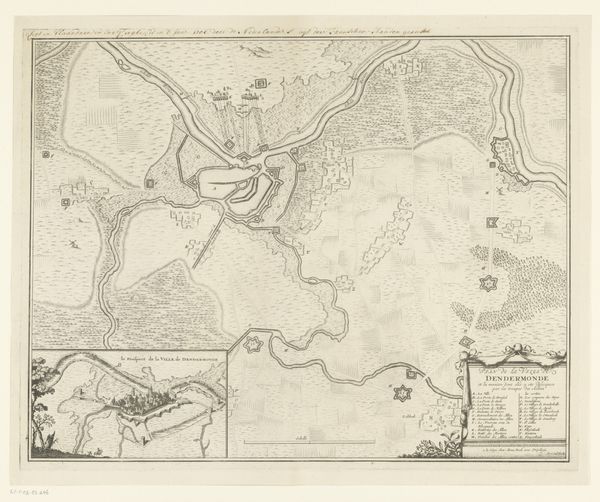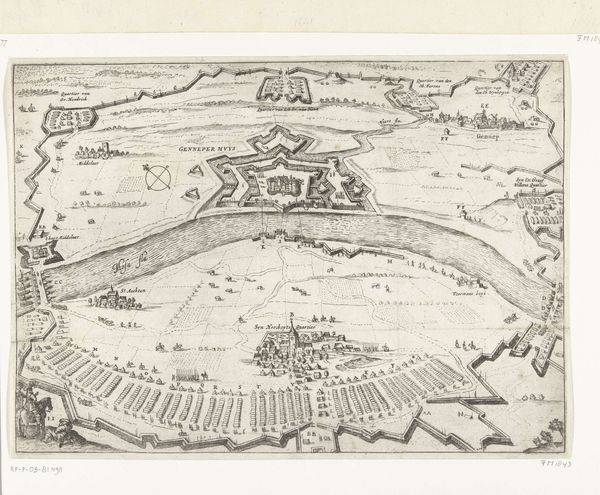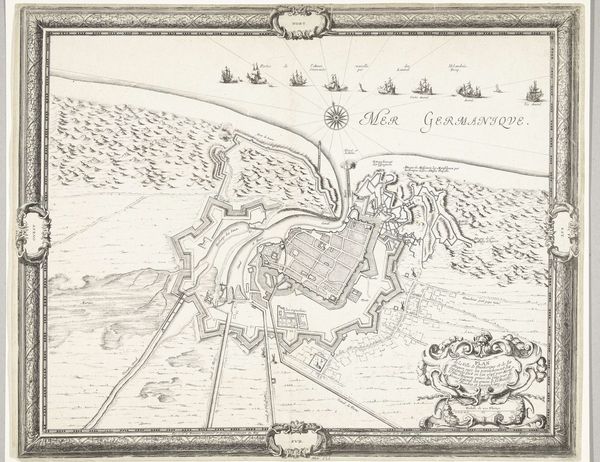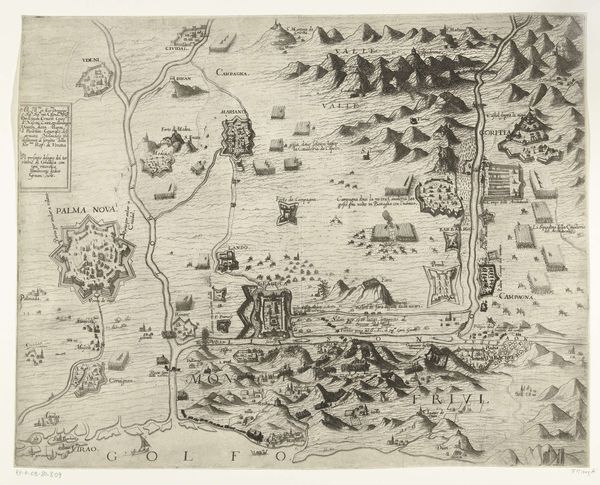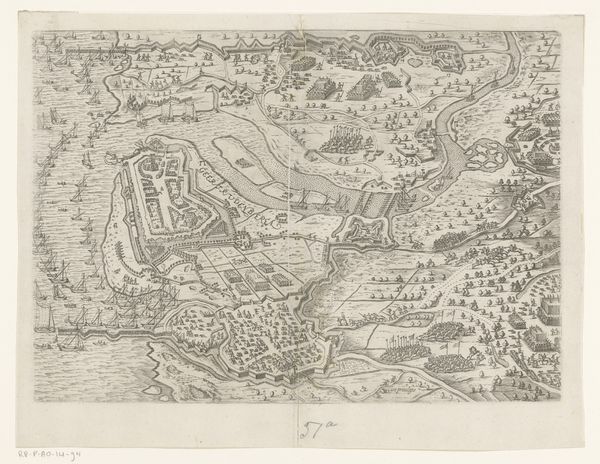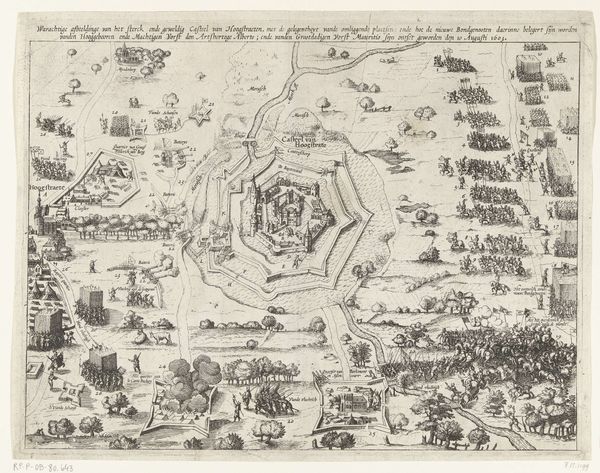
drawing, print, ink, engraving
#
drawing
#
baroque
#
dutch-golden-age
# print
#
pen illustration
#
landscape
#
ink line art
#
ink
#
cityscape
#
history-painting
#
engraving
Dimensions: height 220 mm, width 314 mm
Copyright: Rijks Museum: Open Domain
Editor: We are looking at "Siege and Capture of Hulst by Maurits, 1591," an ink drawing and engraving from the early 1600s by Pieter Bast. It depicts a bird’s-eye view of a battle scene, meticulously rendered in fine lines. The sheer level of detail is impressive, but honestly, it feels a bit like looking at an instruction manual. What symbols stand out to you? Curator: What I see are cultural memories being constructed. Maps, particularly battle maps like this, are so much more than geographic records. Consider, for instance, the massing of tiny figures. Each represents a person, yes, but together, they also evoke collective action and perhaps even destiny. Ask yourself, what story does the very act of mapping a siege tell about the culture that produced it? Editor: That's interesting. I was focused on the objective details, but you're making me think about the subjective interpretation of conflict. So, the placement and arrangement of these figures and ships becomes symbolic of power dynamics? Curator: Precisely. Notice how the artist employs perspective not just for spatial representation, but to emphasize certain areas. The city of Hulst at the center becomes an icon itself, surrounded and almost devoured. The ships, for instance, are not merely transport; they signify naval might, trade routes, the reach of empire. How does knowing this affects your feelings of the visual landscape? Editor: I see that. What first appeared documentary now has so much loaded symbolism – a calculated show of power. It makes me think about how we record history today, what symbols we choose to emphasize. I guess history is never neutral, even in a map. Curator: Exactly. Recognizing these coded visual languages unlocks deeper understandings, offering an opportunity to really question everything we see. Editor: This makes me want to examine other historical documents in a different way. It’s incredible how much information and messaging can be embedded into a single image!
Comments
No comments
Be the first to comment and join the conversation on the ultimate creative platform.
